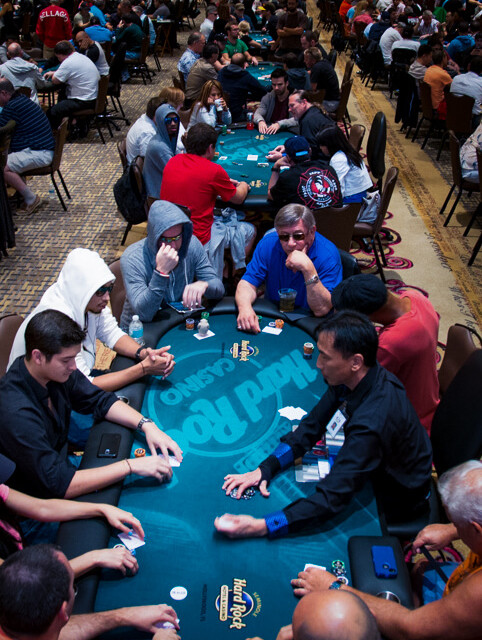
I have long followed the development of what started as a podcast by two poker-loving workers at the St. Petersburg Times in 2005 and has grown into a national magazine, tournament series and cruise, all under the brand “Ante Up.” Founders Scott Long and Christopher Cosenza have a good handle on what the regular poker player want and they deliver news about what’s going on in poker rooms nationwide.
Last month, they tried something different. Rather than conduct “poker room awards” contests – when you pick winners, then you also create losers, and that doesn’t help ad revenue – they asked readers to brag about their poker room via the Twitter hashtag #MyPokerRoom.
“No criteria, no prizes. Just an honest declaration of why they love their room,” Long said. “We’ve learned over the years that what makes one poker room ‘the best’ in one person’s mind can be, and often is, very different from player to player. Some players love big rooms with lots of action. Others like small rooms where the staff knows every player.
“With views that disparate, it’s no wonder that ‘best’ contests always fail. “
Long and Cosenza found out something else though, something that those in other business based on serving the public already know: People are much more apt to complain than they are to speak up about things they like. They didn’t get many responses.
But they got me to thinking, and because I play in all 10 South Florida poker rooms, and anywhere I can on vacation, I think I can recognize the fundamentals of at least an acceptable poker room: Their rules are clear, including on high-hand promotions. The dealers are pleasant. The staff keeps an eye out for cheats and colluders.
That said, here’s my ideal, ideal poker room – taking the best from what I have seen.
I am greeted as I walk into the door, and I am immediately queued up in the computer for the game I want to play (almost always $1-$2 no-limit). As I wait, I head to the cage, plunk down my $150 or so for chips and when they are slid over to me, the cage worker offers up a cheery “Good luck!”
As I wait, there’s a comfy chair nearby, with a view of how many are ahead of me on the list. If there are at least seven, I know it won’t be long. This room will have a spare dealer around to open up another table. Because having players on the sidelines means lost revenue.
But in this case, I’m joining an existing table, which the brush points me to. It’s the second one from the back, middle row. I’m glad I’m not going by just a table number.
The dealer swipes my player’s club card and announces what the requirements are to hit a high-hand bonus. “Aces full of 10s, at least $10 in the pot and both hole cards must play,” she says.
Before the first orbit, a server takes my order (hot tea, with artificial creamer and sweetener) and when she returns, she has a drink holder and a napkin as well. I place a $1 chip on her tray. I place my phone in my jacket pocket. (Somehow, every Florida room I frequent has a greater chance of being too cold rather than too warm.)
There’s a mix of super-tight players and aggressive, macho types who will pay to see every card. Sure, they might hit that flush on the river, but I will have made them pay a price well above what their odds would dictate. The super-tight players I exploit by betting with nothing, knowing they’re going to fold unless they have a big hand.
After a couple of hours – this is an NFL Sunday afternoon and I’ve had a clear view of at least two games – I gather my chips. I didn’t quite double-up, but am easily in the black. The cage worker makes eye contact as she hands me my bills.
On my way out, I grab the card room’s monthly schedule, listing promotions and tournaments. Because after a day like this one, I know I’m coming back.












